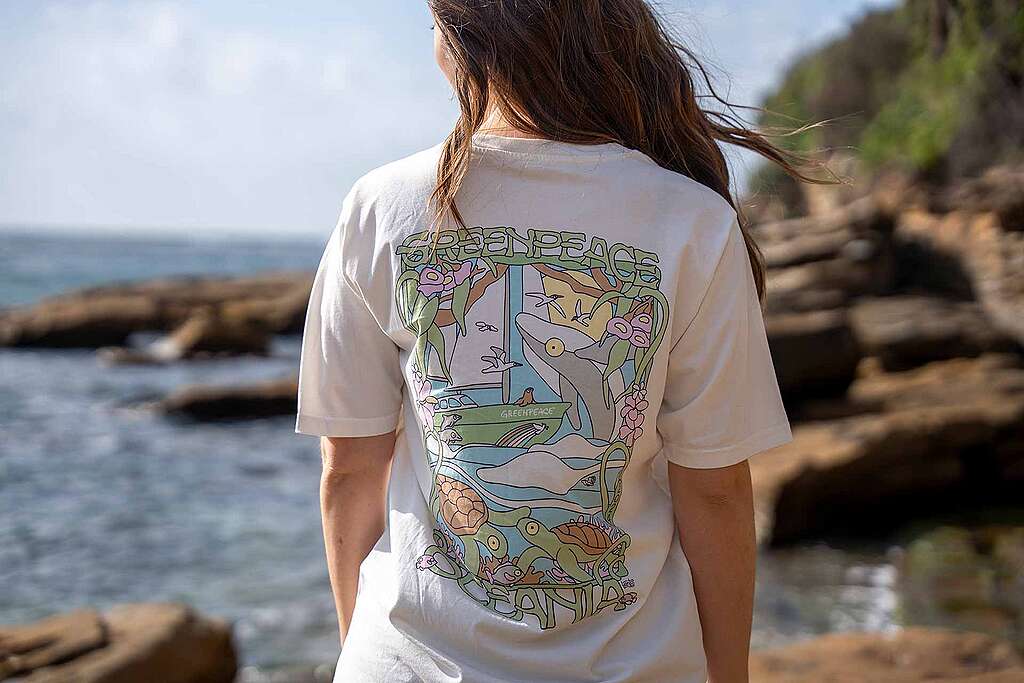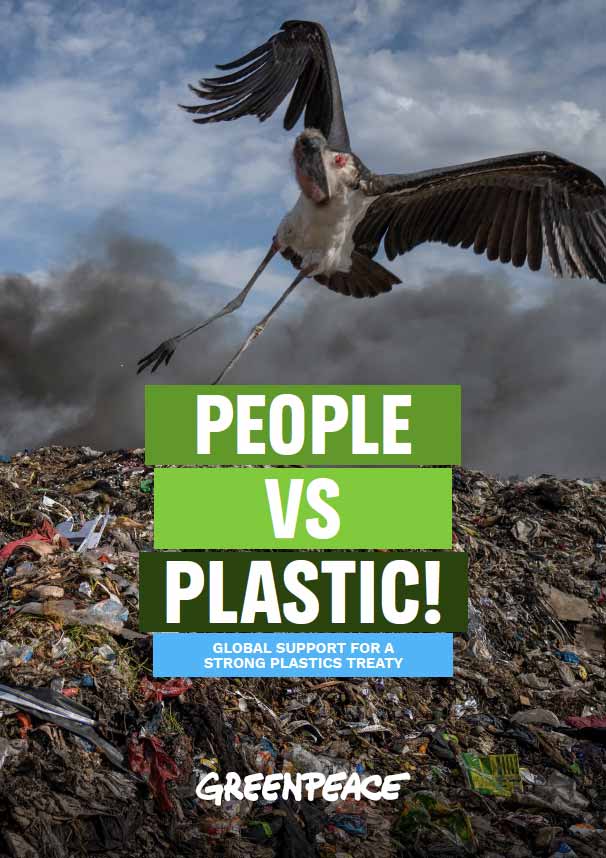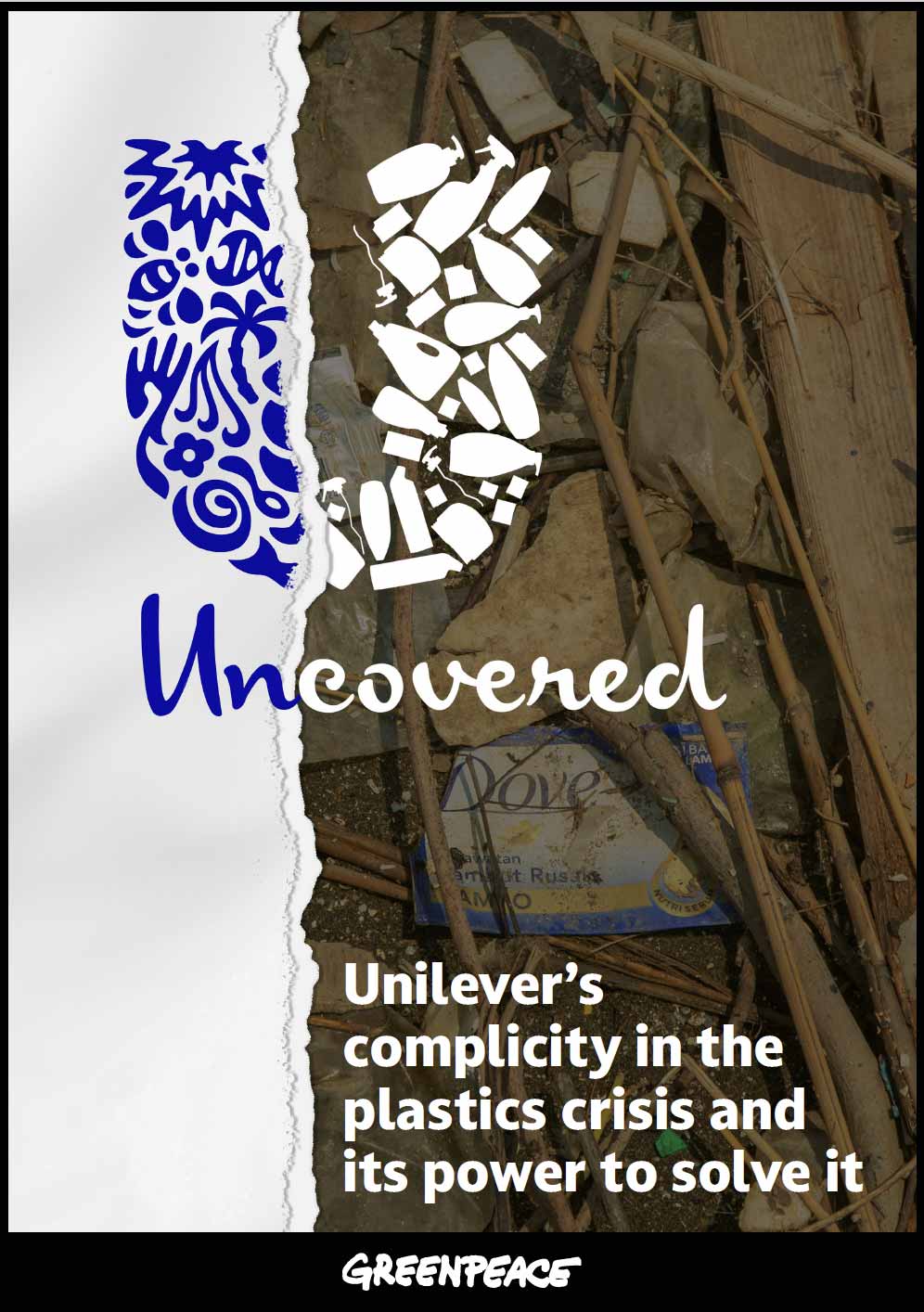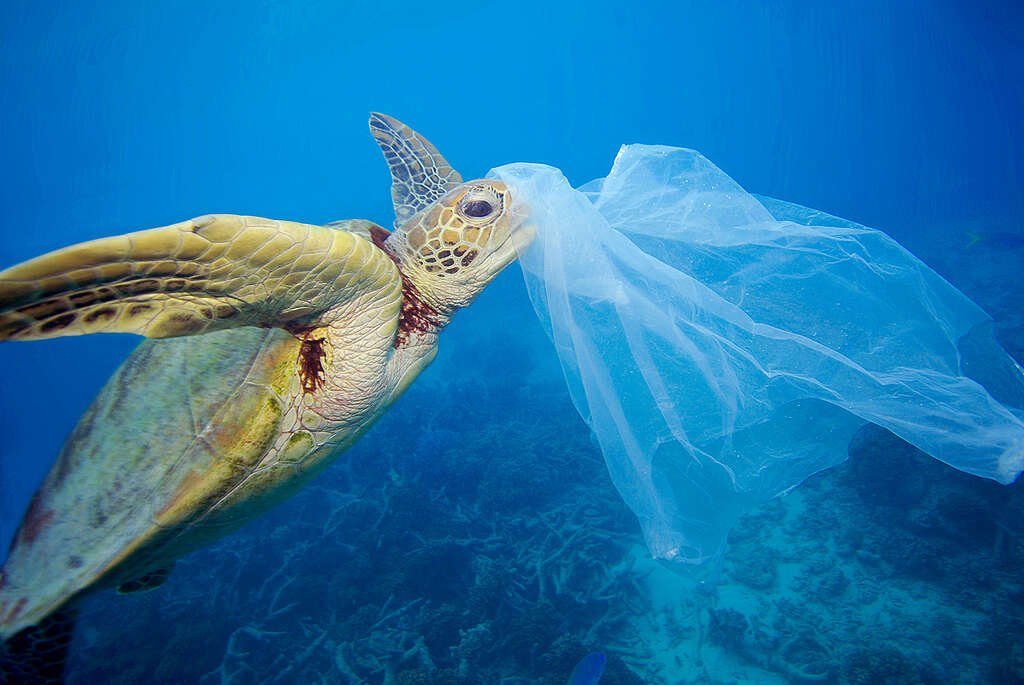
Global Plastics Treaty
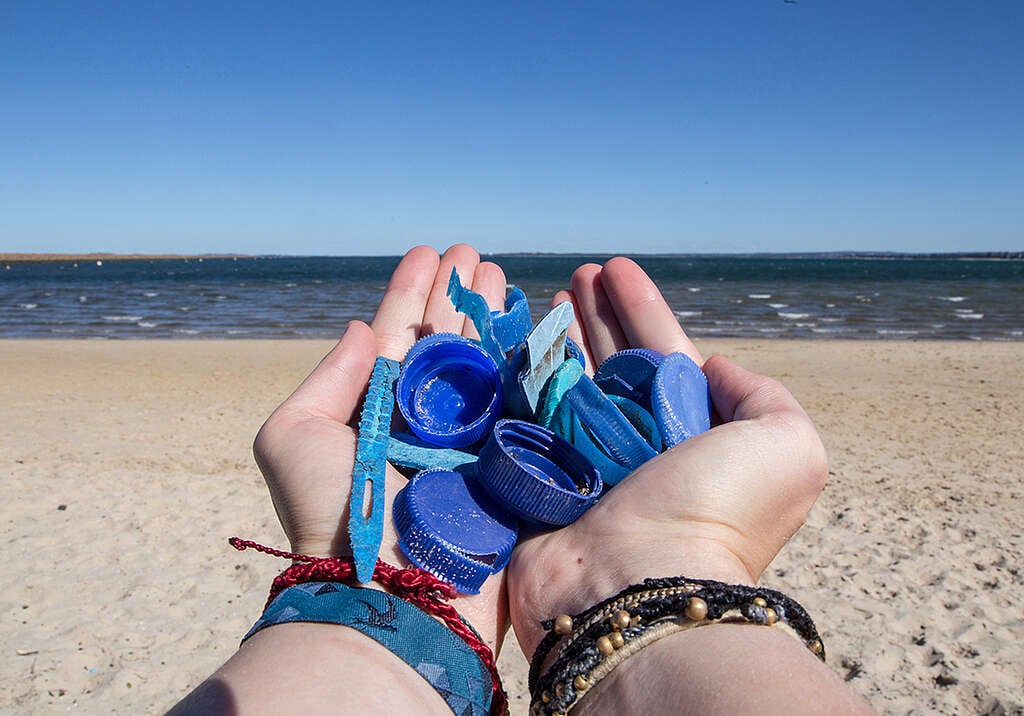
Single Use Plastics
Plastic Free Future
We are living in a world that is being destroyed by throwaway plastic. Plastic pollution has flooded our planet, harming people’s health, accelerating social injustice, destroying biodiversity and fuelling the climate crisis.
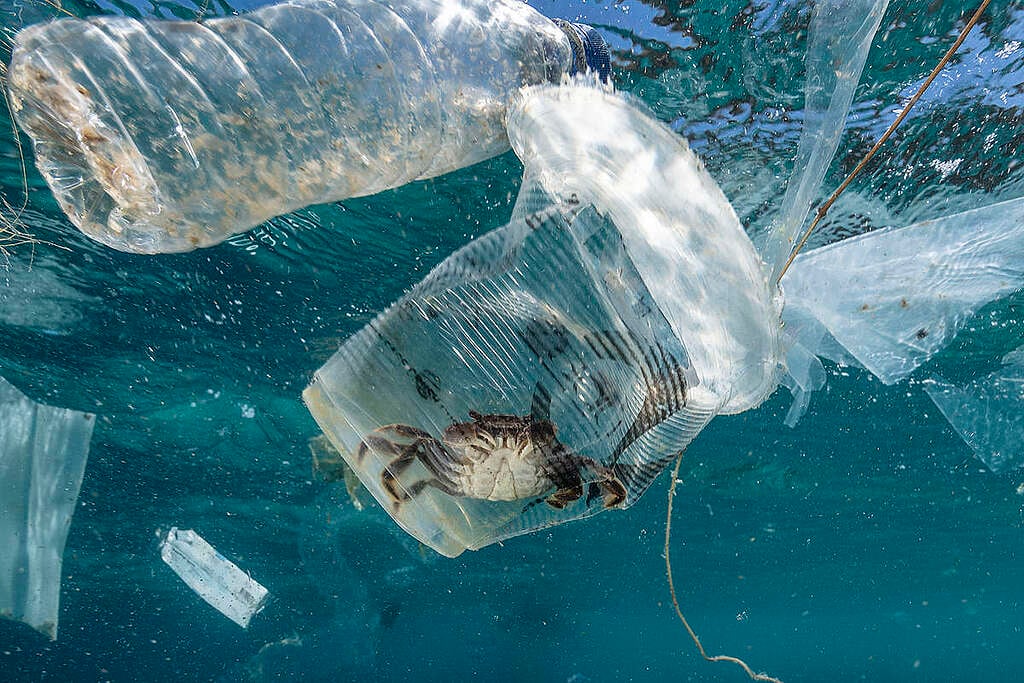
99%
of plastic is made from oil and gas
50-75
trillion
The number of pieces of plastic in our oceans. By 2050, our oceans could have more plastic than fish.
9%
of the worlds plastic gets recycled
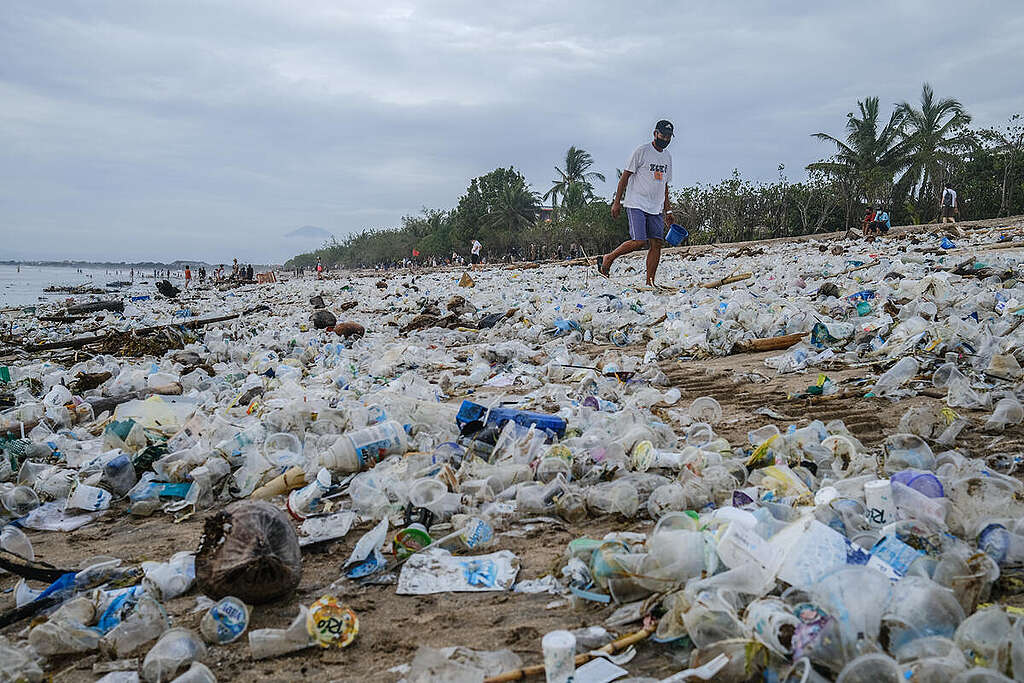
The Problem with Plastics
From beaches in Southeast Asia to the remote Antarctic, plastic pollution is everywhere. It is harming animals like turtles and seabirds, affecting human health, and is a significant driver of the climate crisis.
Science is only beginning to understand the long-term effects of plastic on human health, yet microplastics have been found in the air we breathe and the food we eat, and even in our organs and our blood. And communities on the frontlines of plastic production and waste are disproportionately affected by plastic pollution, social injustice, and the climate crisis.
The fact is that 99% of plastic is made from oil and gas — and big oil are making more and more each year. The full lifecycle of plastic harms livelihoods and the climate.
Despite all of this, big oil, in league with big brands like Unilever, Nestlé and Coca-Cola, continue to promote false solutions and a throwaway single-use model where ‘convenience’ and corporate profits outweigh the cost to our communities and health.
Tackling Plastic Pollution at the Source
This isn’t just a matter of individual people stopping using plastic or recycling more. We need to end plastic at the source: the corporations that create plastic waste.
Greenpeace around the globe is calling on the polluting corporations that produce BILLIONS of tonnes of plastic bottles and waste every year to phase out single- use plastic and switch to refill and reuse today.
We have the opportunity to end the plastic crisis by pushing for a strong and ambitious Global Plastics Treaty that will end runaway plastic production and use. We know that the petrochemical industry, corporations and some governments will try to weaken the ambition of the Global Plastics Treaty, and here is where the battle truly begins.
At the upcoming negotiations in coming years, we will show how an unstoppable global movement can achieve an ambitious Global Plastics Treaty that will turn off the plastics tap and finally, end the age of plastic – for our health, our communities, climate, and the planet.
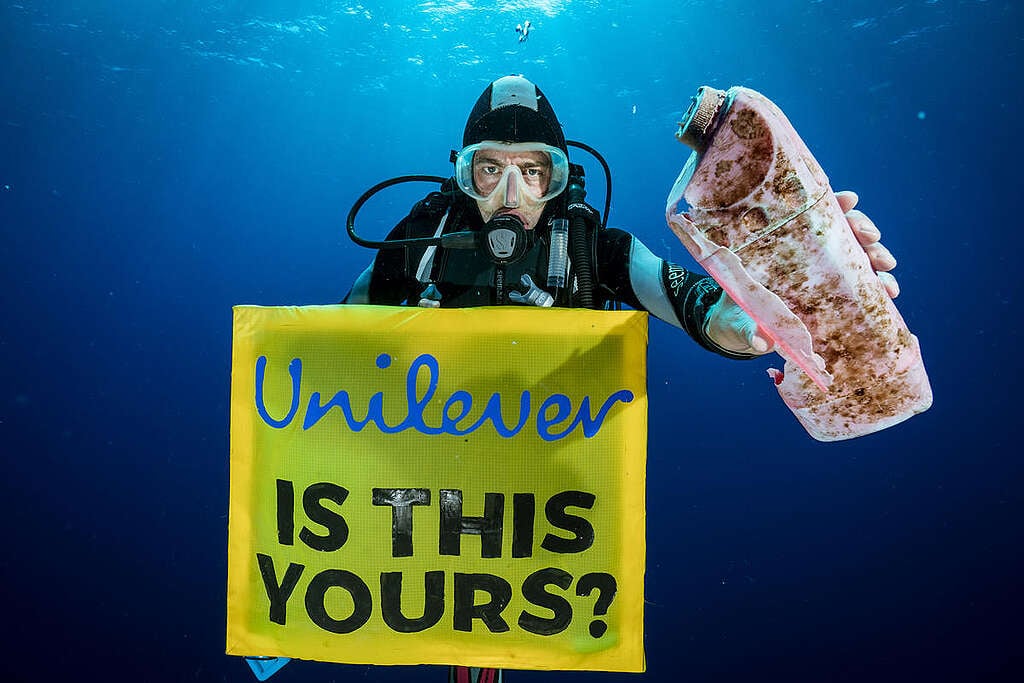
Frequently asked questions about plastic
The concept of plastic recycling has been heavily promoted by the plastics industry, particularly by major oil companies, as a solution to the plastic crisis. By perpetuating the myth that recycling can solve the plastics problem, these companies divert attention from the more significant issue: the continued production of virgin plastics.
Most plastic can only be recycled a few times, and many of the types of plastic packaging currently on the market don’t actually have a recycling market. This means that many single-use plastics have no other destination than landfill, incinerators or our rivers and oceans.
According to estimates published by the OECD in 2022, globally only 9% of plastic waste produced from 1950 to 2015 was successfully recycled. With plastic production projected to increase in the coming years, it is clear that we cannot solve this crisis through waste management and cleanups alone.
The only way to deal with this pollution crisis is to stop single-use plastic production at the source.
Bioplastics do not help us to challenge our current throwaway society or move up the waste hierarchy to give priority to prevention and reduction, as bioplastics are mostly designed to substitute petroleum-based plastics and often disposable or single-use products. Greenpeace also has concerns that bioplastics resourced from intensive conventional agriculture do not support the shift toward ecological agriculture.
To truly tackle the plastics epidemic, companies need to fundamentally rethink how they bring products to people. That could include refill and reuse systems, plastic-free packaging, a combination of approaches or totally new delivery and provisioning systems — but the time has come to stop using throwaway plastic for good.
More about single-use plasticsThe individual consumer can certainly make informed decisions about what they buy, but companies must do better if they want to maintain customer loyalty. People won’t tolerate a company that turns a blind eye to the plastic pollution plaguing our waterways and oceans.
Demand that big corporations stop using single-use plastics!It will take time and investment to phase out all throwaway plastics, but it is time for companies to move toward that goal. New materials and delivery systems are emerging all the time that will make this transition easier. Reduction and ultimately the phasing out of single-use plastics is the only answer to our ocean plastics crisis.
More about single-use plasticIt depends on the plastic, but most petroleum plastic does not biodegrade — it just fragments. Plastics fragment into tiny pieces of microplastic, which is often ingested by marine life before entering our food supply chain. We will never be able to recycle or even compost our way out of this mess — it’s time to stop producing throwaway plastics.
Plastic waste isn’t just found in our oceans and woodlands, our bodies are now contaminated with plastic too. It’s very literally in us.
Science is only beginning to understand the long-term effects of plastic on human health, yet the evidence so far is alarming. Microplastics have been found in the air we breathe, the food we eat, and even in our organs and blood. From production to disposal, our constant exposure and intake of plastic threaten our well-being.
Scientists estimate that around 8 million tonnes of plastic end up in the ocean each year. 30% of the world’s turtles and 90% of seabirds have ingested plastic debris. By 2050, 99% of the world’s seabird species will be accidentally eating plastic (CSIRO). Australians use around 4 billion plastic bags every year – that’s a whopping 10 million or so each day. Clean Up Australia estimates that around 50 million of these end up as litter and make their way into our waterways and oceans.
The plastic bag bans in other states and territories did not ban bin liners. The main cause of the plastic bag problem is the supermarkets showering us with free single-use plastic bags and together we can end this destructive practice. We would absolutely suggest that people use compostable alternatives to plastic bin liners, like potato or corn starch bags, or more creative alternatives like old newspapers to line their bins – or just don ‘t use liners and take your bin out more frequently! Or, even better still, reduce your landfill waste by composting food scraps and recyclables.
What to use instead of plasticThere is a lot we can do on our own, but we need to work together if we want to make substantial change.
Here in Australia, we’re constantly surrounded by single-use plastics. They exist in our fridges as food wrapping, in our coffee shops and restaurants as cups and straws, and even in our bathrooms in products like q-tips and sanitary packaging. It seems everywhere you go, people cannot escape this sea of disposable plastics.
Check out this blog post to find out how every person can help contribute to the end of single-use plastics and don’t forget to sign the petition to demand a strong Global Plastics Treaty to solve the plastics crisis.
We have the opportunity to end the plastic crisis by pushing for a strong and ambitious Global Plastics Treaty that will end runaway plastic production and use.
The negotiations for the Global Plastics Treaty have started, with the goal of completing the process by the end of 2024. The future treaty has a huge potential to put the world on a path towards a plastic-free future but it will be up to us to make sure that it delivers on its promises.
Governments must commit to negotiating a strong plastics treaty that protects our climate by keeping oil and gas in the ground and drastically cutting plastic production.
At the upcoming negotiations, we will show how an unstoppable global movement can achieve an ambitious Global Plastics Treaty that will turn off the plastics tap and finally, end the age of plastic – for our health, our communities, climate, and the planet.
The Global Plastics Treaty is a once-in-a-generation opportunity to solve the plastics crisis. For the sake of our collective future, we cannot waste this moment.
We are in the fifth round and the most critical moment of treaty negotiations. Now is the time to escalate the pressure so that our demands are not ignored: the treaty must cut plastic production and end single-use plastic to solve this global crisis.
You can help bring an end to plastic pollution
12 million tonnes of plastic waste including straws, drink bottles and food wrappers are poured into our oceans each year! And the corporate giants plan to triple their production of single-use plastics. Your donation today will help power our urgent campaign to protect our planet by pushing for a strong Global Plastics Treaty, and calling on polluting corporations to clean up their act.
Get involved
Keep informed
Together we are part of a growing, global movement determined to bring about the changes our planet desperately needs. Sign up to receive updates on our campaigns.

